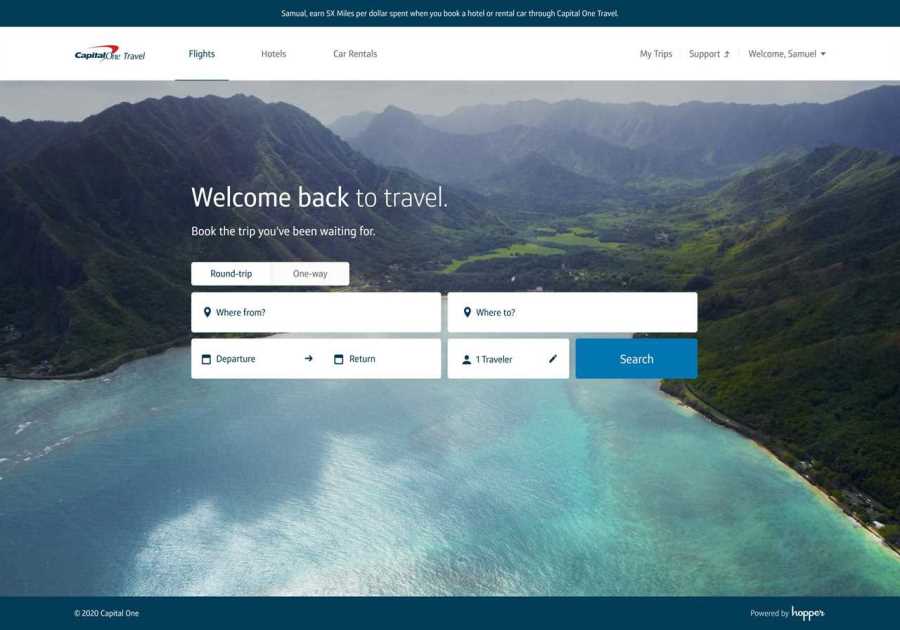HOSTED BY: 1 AIR TRAVEL
Editor’s note: This is a recurring post, regularly updated with new information.
It’s pretty easy to stumble into — nay, hard to avoid — an advertisement from some company offering you free access to your personal credit score. They’re everywhere. And the federal government has mandated that you can get a free credit report from each of the three consumer credit bureaus once a year via annualcreditreport.com. You can also get a free credit report from annualcreditreport.com once a week through the end of 2023.
But when it comes to business credit reports and scores, be prepared to fork out some cash. There are some free services available, but they won’t necessarily give you the full picture.
You should check your business credit report for the same reasons you check your personal one: to find and fix errors (they do happen), to look for evidence of fraud and to keep an eye on what might be dragging down your business credit score. But there’s another good reason to keep an eye on your business credit: It’s public, which means your potential clients or suppliers could use it (for a fee) when deciding whether to do business with you.
Business credit is similar to your personal credit in that it allows potential creditors to judge what kind of credit risk your business may pose. For established firms, a higher business credit score could mean better access to loans and lines of credit, lower interest rates and cheaper insurance premiums. When you’re just starting, you won’t have a business credit score until you open a business credit card or secure a line of credit from a vendor that reports to the major business credit bureaus — Experian Business, Equifax Small Business and Dun & Bradstreet.
Related: More than half of small businesses don’t have a credit card — here are some good 1st choices
Where to get free business credit reports
Dun & Bradstreet offers a free service called CreditSignal, which sends alerts whenever your scores or reports change. However, it doesn’t give you access to the full reports themselves. Here’s what the fine print on the website says:
CreditSignal only shows four of your Dun & Bradstreet scores for 14 days, then provides directional changes to such scores. To view additional scores and ratings or view scores and ratings following the 14-day period, we recommend that you upgrade to one of our paid credit monitoring or credit building solutions.
Credit monitoring services like Nav will give you free access to a summary of your Experian Intelliscore and Equifax reports when you sign up for a free account. The site says its free service “provides business credit grades for each score, summary reports, your personal credit score from Experian, and free tools that may help you build business credit. (No credit card required.)”
THOMAS BARWICK/GETTY IMAGES
Again, these are only summaries and you will need to pay for more tools or details related to your credit report. However, this is a great place to start if you aren’t tracking your business credit.
Nav offers a Business Boost plan for $49.99 per month, while Experian offers a credit report starting at $39.95 per report or up to $189 per year for unlimited reports and tracking data.
Dun & Bradstreet offers CreditSignal Plus for $15 per month and CreditMonitor for $39 per month. The difference is that the former only offers five scores per month; the latter offers all scores and ratings throughout the month without limits.
Another option is Tillful. Just as there are different types of personal credit scores, there are different types of business credit scores. Tillful is free to use but is not exactly the same as the options listed above. If you apply for a loan or business credit card, the issuing bank will probably pull your data from Equifax, Experian, or D&B. Tillful will help you understand your business credit and will issue its own score, but it’s important to understand that this is not the same as the scoring methods lenders are likely to use to evaluate your business.
What details are needed to obtain your business credit report?
No matter which service you’re using to view your business credit report and check your score, you’ll need to provide information about your business. This will include details like the business name, ZIP code for the business address and personal details of the business owner on file to verify your identity.
You’ll likely have to complete security questions as well. These can be information about previous financial obligations or personal details. Providing these answers confirms your identity and that someone isn’t pretending to be you.
Reading your credit reports and scores
Business credit reports show some information similar to your personal credit reports, such as debts and repayments. However, business credit reports also show public records like bankruptcies and tax liens.
Here’s how a typical business credit report is broken down:
Credit: Number of trade experiences, balances outstanding, payment habits, credit utilization and trends over time.Public records: Recency, frequency and dollar amounts associated with liens, judgments or bankruptcies.Demographic information: Years on file, Standard Industrial Classification code and business size.Each bureau will use this data to help generate a business credit score ranging from one to 100 from Dun & Bradstreet’s Paydex score or Experian’s Intelliscore Plus. Equifax uses a score from 101 to 992, while FICO’s Small Business Scoring Service uses a score from zero to 300. These numbers differ from personal FICO scores, which range from 300 to 850.
The closer your business’s credit score is to the top of the range, the better. 80 out of 100 is considered a good score on the D&B and Experian scales.

THE GOOD BRIGADE/GETTY IMAGES
How to improve your business credit score
If you see your business credit score and come away unimpressed, there are ways to improve it. You’ll have to follow similar strategies as you would when looking to improve your personal credit score.
Related: 6 things to do to improve your credit score
Just as with your personal credit score, you can improve your business score by decreasing your credit utilization — paying off balances, opening new lines of credit or asking for a larger credit line — and, of course, continuing to pay your bills on time, if not sooner.
Related: The best way to pay your credit card bills
According to Experian, negative marks on your business report may remain in place for some time. Here are the estimated lengths of time you have until they fall off the report:
Bankruptcies: Nine years and nine months.Judgments: Six years and nine months.Tax liens: Six years and nine months.Collections: Six years and nine months.Uniform Commercial Code filings: Five years.Bank, government and leasing data: 36 months.Trade data: 36 months.If you have business credit cards and are paying these on time, you can earn rewards while also building your credit history and improving your business’s credit score.
Related: 10 considerations for your small-business credit card strategy
Mind your personal credit score also
While opening a business credit card can be an important way to separate your personal and business expenses, your personal credit isn’t immune from taking hits because of your business activity. Some issuers report business card activity to both personal and business credit bureaus. Plus, all major credit issuers will check your personal credit when deciding on your business credit card application, which could cause a small temporary drop in your personal credit score related to this hard pull. These are some factors to keep in mind when you’re considering opening a business credit card.
Related: Small business credit card vs. corporate credit card: Which is right for your business?
However, you’ll have little to worry about — concerning either your personal or business credit score — if you pay your card bills on time every time and try to stay well below your credit limit.

KELVIN MURRAY/GETTY IMAGES
Bottom line
Keeping track of your business credit can help you ensure you have access to the best interest rates and loan options available to a business of your size and longevity. It’s an important way to keep tabs on how others see your business — and how you see it as well. However, tracking this information requires jumping through a few more hoops than you’ll encounter while exploring your personal credit. That doesn’t make the effort any less important, though.
Additional reporting by Danyal Ahmed and Ryan Smith.
Title: How to check your business credit score
Sourced From: thepointsguy.com/guide/how-to-check-business-credit-score/
Published Date: Tue, 25 Jul 2023 18:00:56 +0000
Did you miss our previous article...
https://1airtravel.com/pass/united-airlines-adds-san-francisco-to-manila-flights






